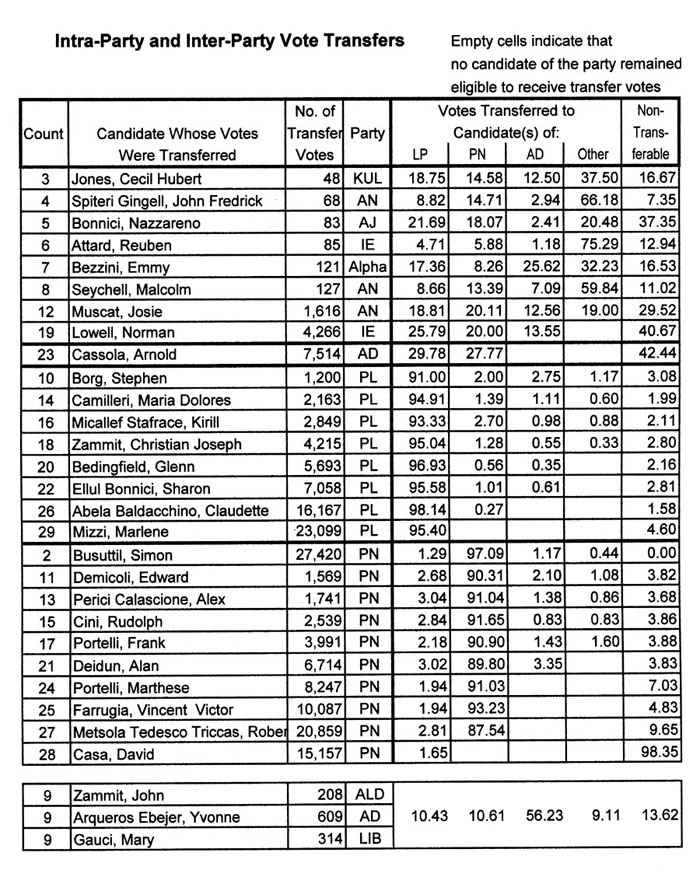MEP Elections 2009
On June 6, 2009, Maltese voters participated in the election of representatives to the European Parliament.
Once again, as in 2004, five representatives were to be elected. This time, however, a Sixth seat would also be decided, to be occupied if and when Malta obtains such an enhanced presence in the European Parliament. The sixth chosen candidate would meanwhile obtain “observer” status only.
The contest attracted some 34 candidates, compared to 27 in 2004. The Nationalist Party fielded 10 candidates and the Labour Party 12. The remaining 12 candidates came from minor parties (most of which were one-person candidacies masquerading as political parties).
The five winning candidates were (in the order of their election):
- Simon Busuttil (Nationalist)
- David Casa (Nationalist)
- Louis Grech (Labour)
- Edward Scicluna (Labour)
- John Attard Montalto (Labour)
All except Edward Scicluna were incumbents. Upon Malta's gaining a sixth seat, Joseph Cuschieri (Labour) would be seated. Following the 2013 parliamentary elections in Malta, Louis Grech and Edward Scicluna resigned their seats and became ministers in the new Labour government; they were replaced by Claudette Abela Baldacchino and Marlene Mizzi. Simon Busuttil resigned his seat to become the new leader of the PN and was replaced by Roberta Metsola.
Voting participation was, once again, low by Maltese but high by European standards:
| Eligible Voters: | 322,411 | |
| Votes Cast: | 254,039 (78.79%) | |
| Invalid Votes: | 5,870 (1.87%) | |
| Valid Votes: | 248,169 (76.97%) |
The distribution of valid (first count) votes among the parties was as follows:
| Labour Party: | 135,917 (54.77%) | |
| Nationalist Party: | 100,486 (40.49%) | |
| AD – The Green Party: | 5,802 (2.34%) | |
| Imperium Europa: | 3,637 (1.47%) | |
| National Alliance: | 1,595 (0.64%) | |
| All others: | 732 (0.29%) |
A Note and a Table
Three aspects of the results stand out: First, the Nationalists failed – as they did in the previous MEP elections – to achieve a majority of the first-counts votes even though they had failed in that respect in only one of the six previous general elections.
Second, the votes for the two AD candidates totaled only 2.34% compared with the 9.33% the party had reached in 2004. The fate of Malta’s third political party now seems to be extinction, as its positions on environmental and social issues have been partially absorbed by the major parties.
Third, although illegal immigration and the accompanying xenophobia were quite prominent in public opinion, the two parties (Imperium Europa and National Alliance) which made these the focus of their campaigns were quite unsuccessful electorally.
Maltese voters continue to forego the opportunity of distributing their voting preferences among different political camps. The strength of party-line voting which characterizes general elections (and the previous MEP election) continued in 2009, as the Table below illustrates.



